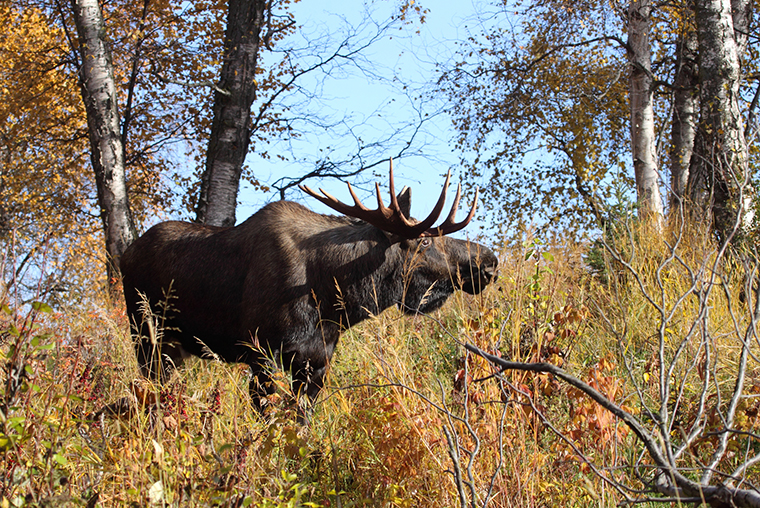
Ontario has a new Big Game Management Advisory Committee, (BGMAC.) The announcement introducing the committee, made on April 17, fulfilled a promise to the outdoors community by the Ford government.
The committee’s function is to provide advice to the Natural Resources Minister respecting policy and programs related to the management of species of big game in Ontario. BGMAC members will also review and recommend changes to the allocation of hunting opportunities for big game as may be requested by the minister. Lastly, they will provide advice on other matters requested by the minister.
Representation
The BGMAC is chaired by well-known hunter John Kaplanis of Thunder Bay. Committee members are Bradley Greaves of Ignace, E. Allen Hyde of Pembroke, Elford Wiens and Glenn Rivard of Thunder Bay, Gary Couillard of Matheson, Fern Duquette of Atikokan, and Ontario Federation of Anglers and Hunters (OFAH) Wildlife Biologist Keith Munro of Peterborough.
The BGMAC consists of members with diverse knowledge and experience in moose management and quota review, moose hunting, tourist outfitter operations, and previous experience on wildlife advisory committees. Though the committee is also tasked to help improve deer, bear, and elk management in Ontario, its initial job will be to develop recommendations on moose management, with a focus on how quotas are developed, and how tags are allocated to hunters through the draw.
Focus on moose
“We have heard concerns from hunters that the current approach, specifically the moose tag draw system, is not working for hunters or ensuring sustainability,” said Natural Resources Minister John Yakabuski. “We’re acting on those concerns and delivering on our promise to make life easier for Ontario’s hunters, while ensuring sustainable populations and continued hunting opportunities.”
The member and Chair have been appointed for a two-year term, with possibility of re-appointment. They will meet in person three times a year, with additional conference calls as required. The committee reports directly to the Natural Resources Minister.
“Over the next two years, our goal is to make moose hunting fairer, more accessible and simpler for hunters. Work is already underway to make immediate improvements to online resources so that we can better communicate with hunters,” said Yakabuski. “As the review unfolds, we will continue to listen and engage hunters and stakeholders to help us improve how tag quotas are developed and distributed.”
“BGMAC’s focus on reviewing the tag allocation and draw processes is an important first step to improving moose hunting in the short term. But the OFAH has been calling for a complete review of moose management for years, and we’re hopeful that the committee’s focus will expand once these short-term objectives are completed,” said Mark Ryckman, OFAH manager of policy.
Public input sought
The BGMAC will host six listening meetings in May. Locations and dates are as follows:
- St. Thomas – May 21, 2019
- Peterborough – May 22, 2019
- North Bay – May 23, 2019
- Sault Ste. Marie – May 28, 2019
- Thunder Bay – May 29, 2019
- Dryden – May 30, 2019
Hunters, organizations, and the public are encouraged to attend these sessions and contribute their ideas on how to improve moose management. Go to Ontario.ca/moose for more details on the listening sessions.
Click here for more information on big game.


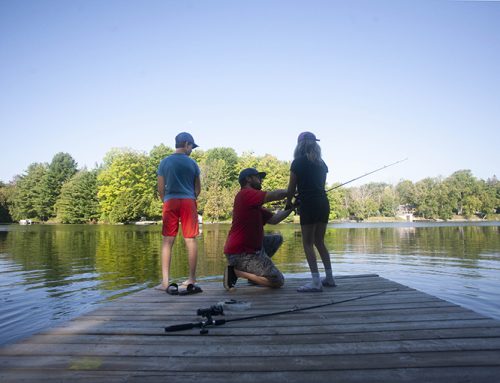
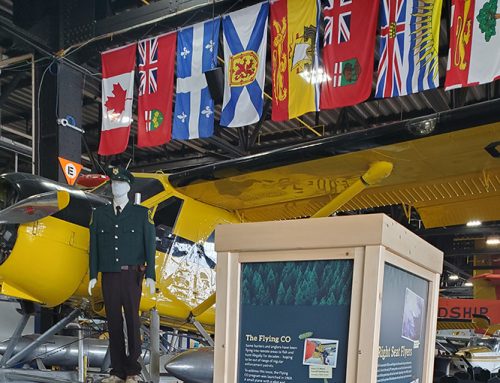
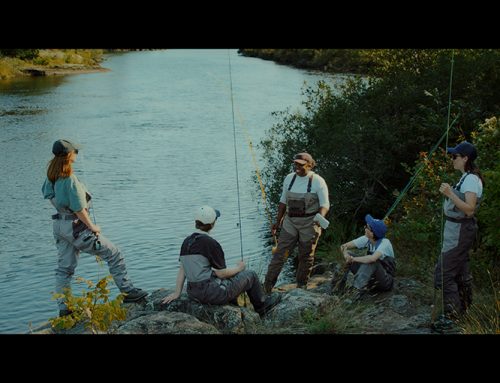
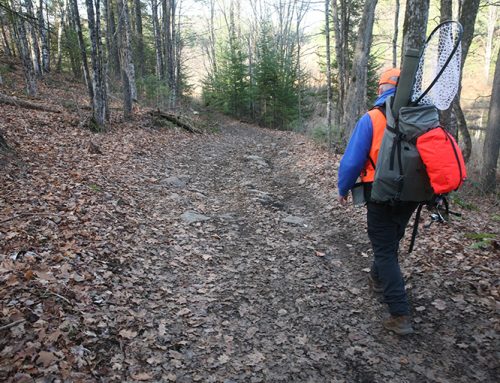
Hi, I have a fly- in camp in in WMU 40. My concern is all float planes shut down in October 15 each year. With the new regulations that now combined bow with firearms makes it impossible to hunt moose. We (bow hunters) use to hunt from September 15 and I’m sure we didn’t make such an impact on harvesting adult moose. THANKS for listening and hoping the bow hunt would be reinstated as I’m sure there’s many more camps only accessible by float planes would appreciate it. Our camp alone was spending in excess of $15000.00 in the hunting season but because of the later hunting season and float planes shutting down on the 15 of October making it now impossible to get in to hunt moose. Your response would be greatly appreciated.
I appreciate the effort but it’s too late. Of the dozen or so moose hunters that I know personally, all but two have given up on Moose hunting within the last 5 years, give or take. All were sick & tired of going “Moose Camping” (hunting with only calf tags). All hunted in areas that had good moose populations & moose were seen regularly but tag frequency was 10 + years for several if not most hunters. All hunted in small groups with absolutely no desire to take part in the 6, 8 or 10 person groups required to ensure a tag… All had the same view that hunting calves was absurd & several had put MNR on the spot with questions of WHY calf only… All were met with the same ridiculous answer that- “50% of calves die in the first 12 months of life so taking a calf that will die anyway” is sound logic… This is THE MOST RIDICULOUS THING ANYONE HAS EVER HEARD & was an excuse for the real reason- The tag system in Ontario was designed to produce maximum income for the government while actually providing minimal tags for hunters. Other areas that have “draws” charge a small or nominal “entry fee” to get in the draw & a fairly hefty fee for the actual licence if you are drawn. This type of system promotes sustainability without charging hunters full price for something they may never receive… The final straw for myself was when, in some areas adult season starts two weeks prior to the calf season?!? I have no words for this type of insanity & would really like to get my hands on the complete idiots that thought this up. It is inhumane, wasteful, cruel, stupid, I could go on & on but my point is that the same “biologists” that thought this up will still be involved in management decisions going forward & I strongly doubt the government is willing to relinquish any potential income in favour of rebuilding moose herd numbers. WE SIMPLY HAVE COMPLETELY LOST TRUST IN MANAGEMENT PRACTICES & METHODS & NO AMOUNT OF “LIP SERVICE” WILL RENEW THAT BROKEN TRUST…..
Mr. Peter Beilke See post#2 is 100% correct, pls see his post in regards to the Moose Draw System in Ontario. His post is very detailed and completely accurate.
Thank-you Mr. Beilke.
I have been a Moose hunter for many years . we have a camp in area 24 . at one time it was 2 tags for one one Bull.” note” I said Bull. not cow…………. to grow a herd you need cows , but it seems the advisory group you have does not seem to listen …I have said this for many,MANY years to the MNR but the bioligist know better???????? go see a farmer .
The basics are less cows ,,, less ,,Moose … stop Killing the cows for 5 years …. you will have More Moose.
I have hunted since I was 17 years old now in my mid 70 ‘s , licence was 1.00 & there was no fishing licence needed All the M.N.R thinks about is making more money not increasing Moose .Hunters who are over 70 years old should have guaranty Moose tag. Bull only .
YOU KILLING TO MANY COWS.
Regards
Fred Wolf
Any farmer knows that to increase your heard you don’t shoot calves or cows. The natives also believed this to be true. Where are the people that are making these decisions coming from? Maybe they need to talk to farmers about this. Think about this. Even if you have to postpone moose hunting for a few years. Every other year only bulls are hunted. Bring those # back. People are poaching anyway to get their meat.
Really, you need input again. As has been said over and over for over a decade. Stop shooting calves. Limit harvest of cows. Stop allowing non-resident deer hunting in unlimited uncontrolled manner in areas like Kenora and Dryden, that destroyed the population and buck to doe ratio’s.That said, allow access for non residents in all areas on limited tags for all species. Why would unit 13 have no non-resident tags for deer? Most non-residents will use guides. Only has to be 10% of tags for non residents but it will generate huge revenue, millions for game and fish biologists, education, reintroduction, habitat improvement, access and enforcement. A complete turn around in our hunting tourism. $1600 for moose tag, $150 for preference point each year. $400 for bear tag. $40 for preference point each year. $400 for deer tag, $150 for preference point each year. $600 for elk tag, $50 for PP point each year. Reduce predator numbers by any means necessary. Look to Western US states for information on how to manage wild game populations. Many other issues as well like giving out a few thousand tags for moose in north shore of lake superior because there may or may not be 5 or 6 caribou there. Really? Manage the resources, do not knee jerk 3 or 4 years too late. This province should be doing so much better. Flying caribou and wolves around islands in superior when there are elk in NW Ontario that could be thriving and become a huntable population with some attention. Just wow.
We must do something with the moose hunt!
We must come to some agreement with the natives, it is in their interest too!
The season should be shortened! Why when there are lots of deer is the season one to two weeks long and the poor put upon moose it’s a month?
A bear tag should be included with any big game tag, just like in my youth. If you buy a moose tag you also get a bear tag. Second tags should be available, spring and fall.
Wolves should be taken off the big game register and treated like small game or the vermin that they are., they should be shot whenever possible.
Stop giving out calf and cow tags in most WMUs, And having an adult season open before the calf is idiotic!